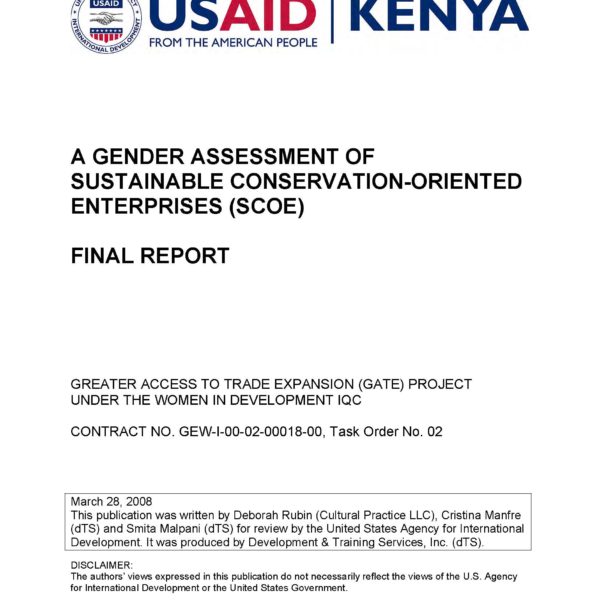Enterprises based on natural products and services are termed in this report “sustainable conservation-oriented enterprises” (SCOEs) to emphasize the dual goals of conservation and economic viability. The types of enterprises are organized into four categories: cultivation-based, ecotourism-based (wildlife- and landscape-based), natural product-based, and culture-based. Activities of these enterprises have resulted in numerous benefits, such as increased levels of income for the individuals involved, both men and women, and for their communities. The activities have also provided opportunities for training in business development; capacity building for natural resource management institutions; and technical training in animal husbandry, game tracking, handicrafts, and conservation.
However, both men and women face significant challenges in engaging these enterprises; the challenges, some of which vary according to the type of enterprise, include a lack of access to credit, land, markets, and information. Some gender constraints are particularly difficult because of the enterprises’ reliance on natural products and services that might only be found at long distances from women’s homes or on collectively-owned or community property. In these cases, women especially are hampered by a lack of mobility and secure tenure to land and other property, which then makes access to credit more difficult. Time poverty also inhibits their ability to pursue enterprise opportunities. In some pastoral communities, women do not appear to have equal rights to membership, participation, and decision making in the group ranches that are the foundation of many ecotourism enterprises. Cultural beliefs combined with discriminatory hiring practices impede women’s participation in outdoor work, such as game monitoring or hospitality employment positions.

